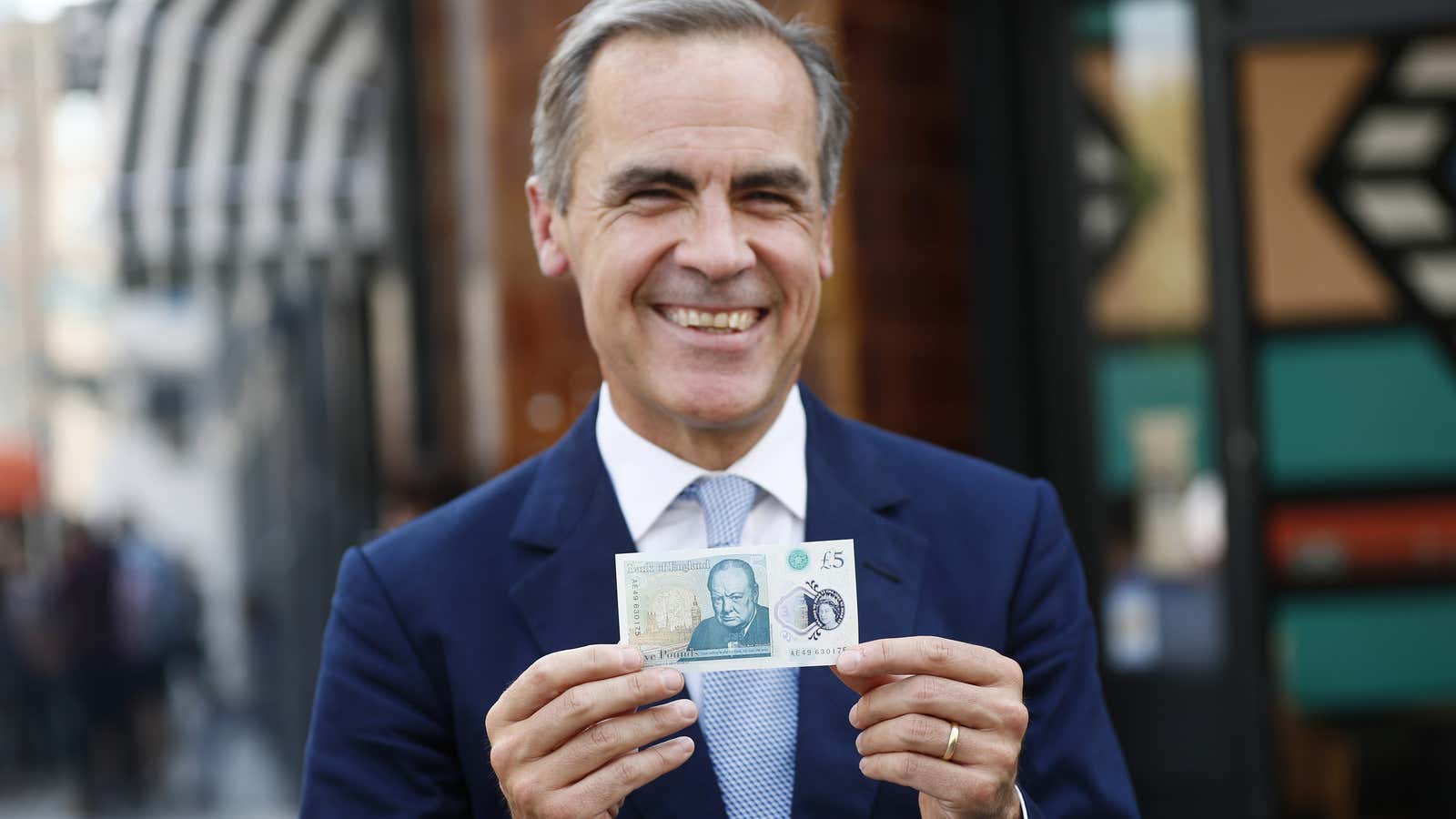The Bank of England announced Sept. 16 that it’s upgrading the payments systems that move over $600 billion a day for British traders and banks. By 2020, the Real-Time Gross Settlement system will be made more easily accessible by smaller institutions, and constantly online, instead of only during working hours, Reuters reported.
In a sign of how important blockchain–the technical idea underpinning cryptocurrencies like bitcoin–has become, a key part of the plan is to make sure the new system works with “distributed ledgers,” another term for the technology. “The new RTGS service must be capable of interfacing with a range of new technologies being used in the private sector, including distributed ledgers, if [and] when they achieve critical mass,” the Bank of England’s proposal for the changes said.
The UK’s central bank has been among the most active in exploring uses for blockchain, and governor Mark Carney talked about the technology in a draft of his annual speech (cancelled at the last minute because of the fatal shooting of MP Jo Cox) in June. “If distributed ledger technology could provide a more efficient way for private sector firms to deliver payments and settle securities, why not apply it to the core of the payments system itself?” a transcript of the speech (pdf) said.
Central banks, including the Bank of England, are exploring issuing their own cryptocurrencies. Central bank issuance, as opposed to issuance by third parties such as the various groups of commercial banks and brokerages experimenting with digital currencies, would result in a more stable financial system and instant clearing and settlement. Commercial banks are already laying the groundwork for a future with central bank-issued cryptocurrency, with projects like a UBS-led effort for global payments announced in August.
Julio Faura, head of research and development at Santander, one of the partners in the UBS payments effort, told Quartz the project could encourage central banks to issue their own digital currency sooner. ” ‘Settlement coin’ is a good first step towards towards a later scenario where the central banks are issuing cryptographic or digital money directly,” he said.
The Bank of England sounds a cautionary note about blockchain in its proposal. “The resilience characteristics of the distributed ledger in particular are potentially highly attractive from a financial stability perspective,” it reads. ”It is however unlikely that this technology will prove sufficiently mature to form the core of the next generation of RTGS itself.”
Prominent figures in the cottage industry around blockchain echo the central bank’s concerns. For Simon Taylor, a co-founder of consultancy 11:FS, the proposal reads like “future-proofing” for blockchain when it arrives, rather than an indicator of the central bank’s bullishness on the technology. “I think they’re just being diligent,” he said.
